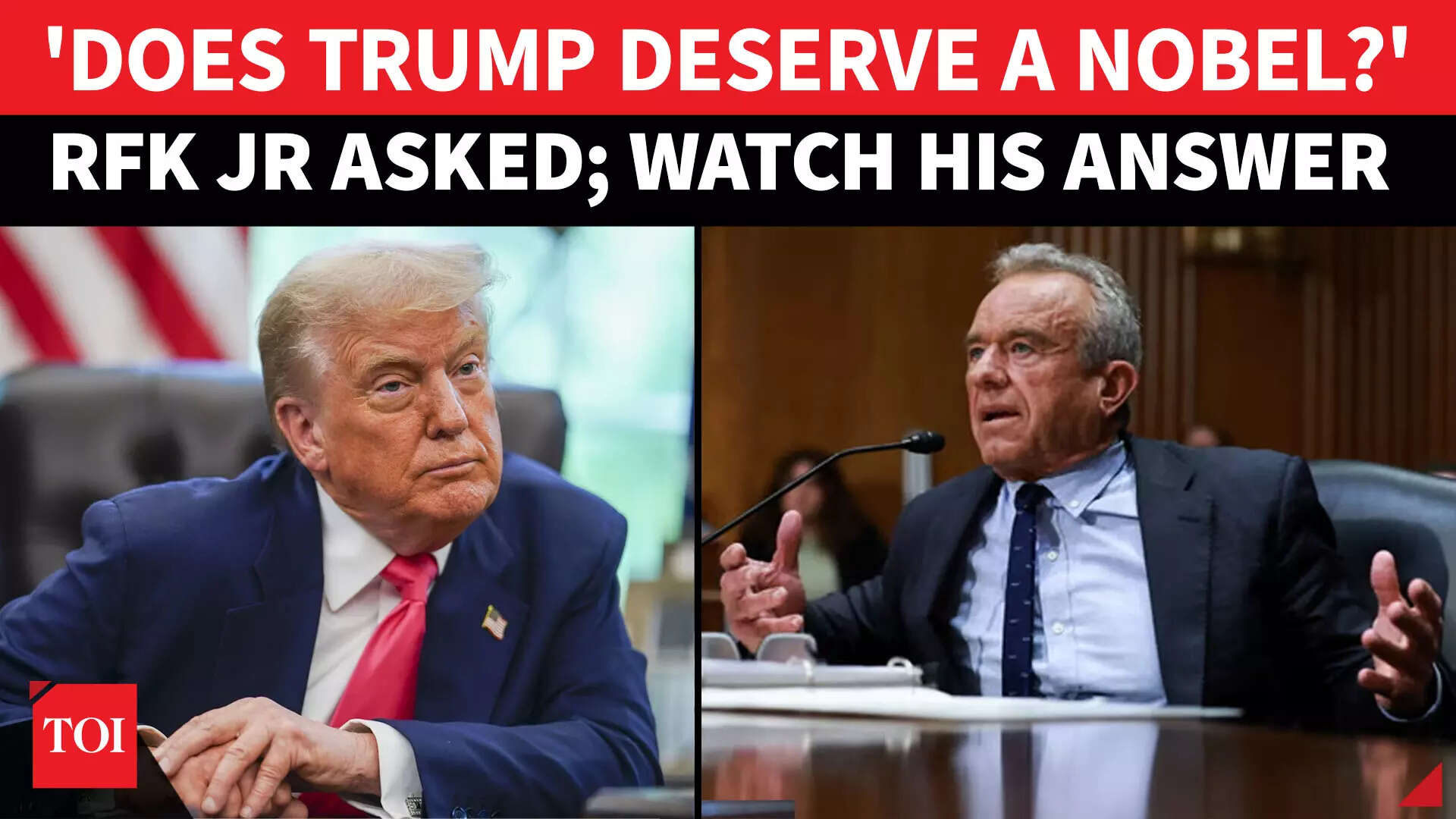Top Stories
Robert F. Kennedy Jr. Questions Trump’s Nobel Peace Prize Worthiness

In a recent session of the U.S. Senate, Robert F. Kennedy Jr. sparked controversy by questioning whether former President Donald Trump is deserving of the Nobel Peace Prize. This unexpected remark arose during a heated debate about America’s role in global diplomacy and conflict resolution, prompting strong reactions from lawmakers across the political spectrum.
The session, which took place on October 17, 2023, saw Kennedy challenge the efficacy of current U.S. foreign policy, arguing that Trump’s actions in office should be scrutinized in the context of peace efforts. His statement quickly ignited division among senators, with some dismissing it as mere political theater while others supported his call for a reevaluation of the United States’ international standing.
Kennedy’s remarks came during discussions centered on the effectiveness of the U.S. in mediating international conflicts. He pointed to Trump’s unorthodox approach to diplomacy, particularly his engagement with North Korea and efforts to normalize relations with various nations. “We must consider the broader implications of our leaders’ actions,” Kennedy stated, advocating for an honest assessment of past presidencies in the context of peace achievements.
The responses from senators varied significantly. Some members of the chamber criticized Kennedy for what they perceived as an attempt to politicize the Nobel Peace Prize, traditionally viewed as an honor that transcends partisan politics. Others, however, echoed his sentiments, emphasizing the need for the U.S. to regain credibility on the world stage.
Kennedy, a prominent environmental lawyer and political figure, has consistently challenged conventional political narratives. His comments during the Senate session reflect a broader sentiment among certain lawmakers who believe that American diplomacy requires introspection and reform. By bringing Trump’s past actions into the conversation, Kennedy aimed to provoke a discussion about the moral and ethical dimensions of leadership.
As the debate progressed, it became clear that the implications of Kennedy’s statement were significant. The discussion not only highlighted the contentious nature of U.S. politics but also underscored the complexities involved in evaluating leaders’ contributions to peace. The Nobel Peace Prize, awarded annually since 1901, recognizes individuals and organizations that have made notable efforts to promote peace, making Kennedy’s inquiry particularly poignant.
In the wake of the session, the discourse surrounding Trump’s legacy and its impact on his potential candidacy for the Nobel Prize will likely continue. As the world grapples with persistent conflicts and the evolving landscape of international relations, the importance of assessing past leadership within this framework remains a pressing issue.
The Senate session concluded without a formal vote on the matter discussed, but Kennedy’s provocative question has undeniably set the stage for ongoing debate regarding the criteria for global recognition of peace efforts. As politicians and citizens alike reflect on the implications of such discussions, the necessity for a clear and united approach to foreign policy remains paramount for the United States.
-

 World2 months ago
World2 months agoSBI Announces QIP Floor Price at ₹811.05 Per Share
-

 Science1 month ago
Science1 month agoNew Blood Group Discovered in South Indian Woman at Rotary Centre
-

 Lifestyle2 months ago
Lifestyle2 months agoCept Unveils ₹3.1 Crore Urban Mobility Plan for Sustainable Growth
-

 Sports1 month ago
Sports1 month agoBroad Advocates for Bowling Change Ahead of Final Test Against India
-

 Sports1 month ago
Sports1 month agoCristian Totti Retires at 19: Pressure of Fame Takes Toll
-

 World2 months ago
World2 months agoTorrential Rains Cause Flash Flooding in New York and New Jersey
-

 Top Stories2 months ago
Top Stories2 months agoKonkani Cultural Organisation to Host Pearl Jubilee in Abu Dhabi
-

 Science2 months ago
Science2 months agoNothing Headphone 1 Review: A Bold Contender in Audio Design
-

 Top Stories2 months ago
Top Stories2 months agoAir India Crash Investigation Highlights Boeing Fuel Switch Concerns
-

 Business2 months ago
Business2 months agoIndian Stock Market Rebounds: Sensex and Nifty Rise After Four-Day Decline
-

 Politics2 months ago
Politics2 months agoAbandoned Doberman Finds New Home After Journey to Prague
-

 Top Stories2 months ago
Top Stories2 months agoPatna Bank Manager Abhishek Varun Found Dead in Well









